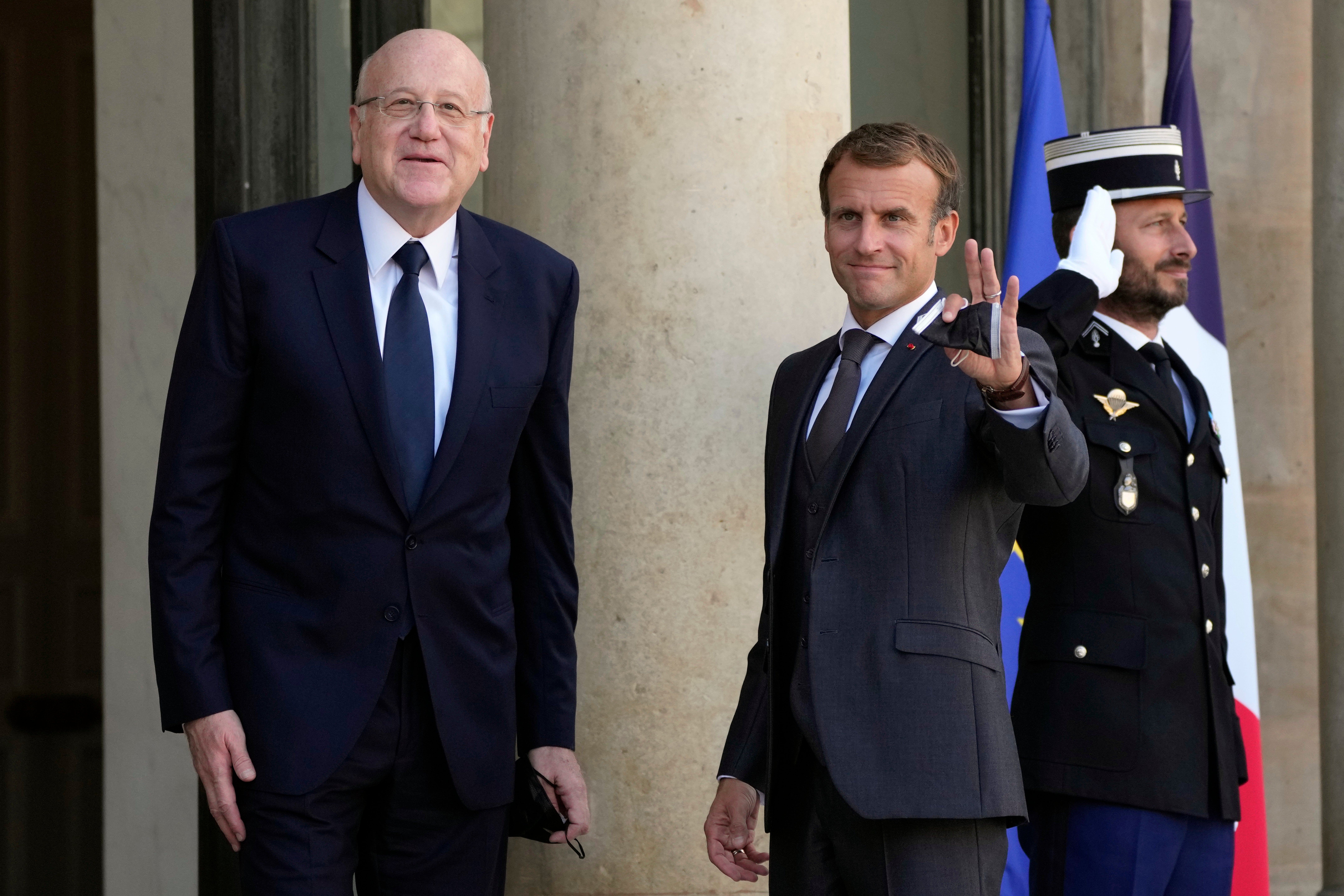France pledges support for Lebanon's new prime minister
French President Emmanuel Macro has met with Lebanon’s new prime minister, wishing him success and promising France would continue to support to the crisis-struck country

Your support helps us to tell the story
From reproductive rights to climate change to Big Tech, The Independent is on the ground when the story is developing. Whether it's investigating the financials of Elon Musk's pro-Trump PAC or producing our latest documentary, 'The A Word', which shines a light on the American women fighting for reproductive rights, we know how important it is to parse out the facts from the messaging.
At such a critical moment in US history, we need reporters on the ground. Your donation allows us to keep sending journalists to speak to both sides of the story.
The Independent is trusted by Americans across the entire political spectrum. And unlike many other quality news outlets, we choose not to lock Americans out of our reporting and analysis with paywalls. We believe quality journalism should be available to everyone, paid for by those who can afford it.
Your support makes all the difference.French President Emmanuel Macro met Friday with Lebanon’s new prime minister, wishing him success and promising France would continue to support to the crisis-struck country.
Lebanese Prime Minister Najib Mikati is on his first foreign trip, days after his government was confirmed by parliament. The confirmation ended a 13-month deadlock that came as Lebanon is struggling with an economic meltdown and rising poverty.
“You have an immense and historic responsibility," Macron told Mikati during a joint press conference at the Elysee "We will do everything to help you succeed.”
Throughout Lebanon's crisis, France had taken the lead among the international community in helping the small Mideast country, a former French protectorate. Paris has hosted aid conferences and pushed for reform, and last year, Macron presented Lebanese politicians with a road map for policy change and reforms. At the time, his hands-on approach failed to push bickering Lebanese politicians into action.
Macron said Friday that Lebanon faces a “humanitarian emergency” and promised France would help in efforts to “mobilize the international community to respond to the most urgent needs.”
“We have an opportunity to advance concretely on the path of reforms,” Macron said, adding that international support can provide more help once energy and public finance sector reforms are launched.
“The path is arduous and the task is difficult,” Macron said. “We are here. France will remain at the sides of Lebanese people.”
Mikati's government is expected to undertake critically needed reforms while grappling with rising public anger and tensions resulting from the deepening hardship. He said he will be counting on France’s support during talks with the International Monetary Fund to negotiate a recovery package, a priority for the new Cabinet.
Mikati had said he would lift subsidies by the end of September as Lebanese foreign reserves run dangerously low and the central bank said it could no longer support its $6 billion subsidy program.
A billionaire businessman and one of the richest men in Lebanon, this is Mikati's third turn as premier. He is widely seen as part of the entrenched political elite and few believe he can chart a path for reform with a government that leaves power in the hands of the same political parties the public blames for corruption and mismanagement of Lebanon’s resources.
In Beirut, dozens of Lebanese depositors protested outside a few private banks in the city center Friday, demanding access to their hard currency deposits which have been de facto locked since the financial and economic crisis unfolded in late 2019.
The protesters hurled eggs and tomatoes at the bank buildings, prompting angry bank employees to shout at them. Lebanese security forces pushed the crowd back.
Private banks have imposed informal capital controls, limiting withdrawals, transfers and effectively preventing access to foreign currency accounts. The national currency has since been in a free fall, losing more than 90% of its value.
___
Associated Press writer Sarah El Deeb in Beirut contributed to this report.